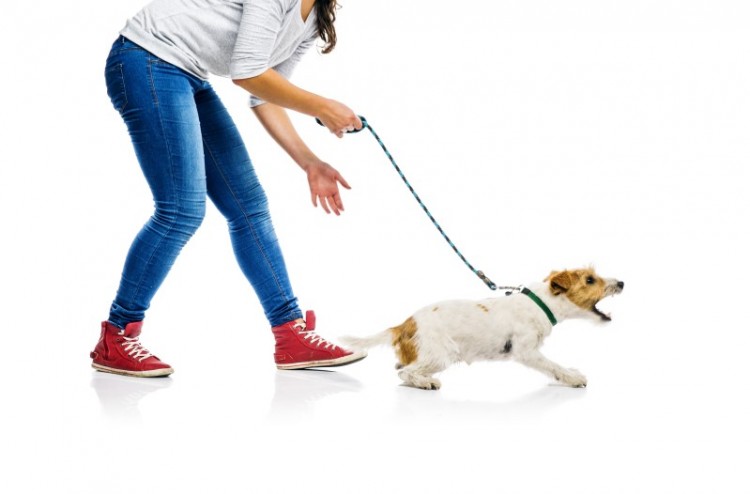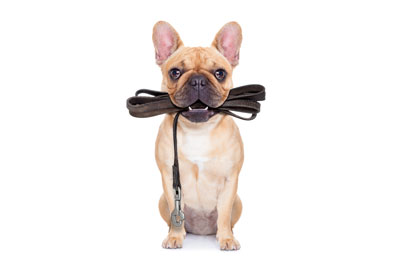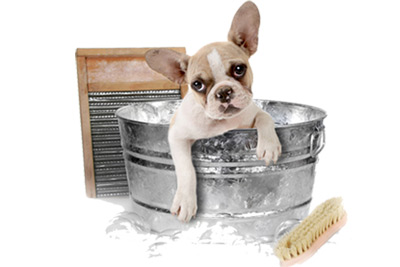
My dog is barking! What can I do to make him stop ?
- 14 Oct, 2020
- The Dogs
First, know that barking is caused either by learning or by emotion. There are only these two possible causes.
What I mean by learning is quite simple. Either you taught it to bark on command, or you accidentally rewarded or reinforced the barking when it occurred. If you taught him to "talk" on command from you; you most certainly taught him to be silent on command. Your dog usually doesn't have an irritating or excessive barking problem and you are handling the situation well.
When barking became an involuntary reinforced learning process, it was often because your correctional attitude was inadequate. For example, a neighbor walks his dog on the street and passes your house. Your dog sees him on the sidewalk and barks. You say, "That's enough!" "No, no, no, no, no, no!" "Shut up, shut up, shut up!" "Will you shut the fuck up?" Maybe you'll use a newspaper or a slap of the hand? In short, your reaction is inadequate. You are simply barking with your dog. You are attacking him.
There is also what I call "Factor Syndrome". The mailman goes from door to door to deliver the mail. The dog sees or hears the mailman coming. He barks. The mailman leaves and the dog, in his head, believes that his barking has scared the mailman away. The dog is self-rewarded by the intruder's "escape". It is exactly the same principle for the dog that barks at cars, bicycles, joggers that pass in front of the fence of your property.
When barking is emotional, it is often uncontrollable and dictated by fear, dread, anxiety or even excitement. The excitement is related to the pleasure of the game and the reunion. As soon as you turn the corner, your dog recognizes the sound of the car and his excitement makes him bark with joy to see you finally come home... even if you've been gone less than 30 minutes! You go to agility class and your dog anticipates the joy of running and jumping, so he barks! He plays by barking. In short, it's pure pleasure for him.
On the contrary, when barking is linked to your dog's fear, dread or anxiety, his emotion is in distress. He feels his survival potentially threatened. He barks to try to frighten the person who is frightening him. He barks in an emotional reaction to try to reduce his level of fear, his emotion. This type of dog will very often need medication or veterinary follow-up adapted according to the anxiety diagnosis that will be established by the veterinarian.
The use of an electronic anti-bark collar should be avoided in most cases. These collars are often triggered at the wrong time, therefore the correctional timing is inadequate. The fearful, even anxious dog will be even more destabilized by these inadequate corrections and the problem will worsen. The dog might stop barking, but, for example, would start to get licking wounds. The use of this type of collar is done by exploiting fear... fear of receiving a vibration, a jet of air or citronella, or a shock.
Before trying to correct a barking dog, you must know WHY he barks! If he lacks self-confidence, you must build that confidence and re-educate the dog accordingly. If the dog is excited, he must be taught to speak and shut up on command.
For more information, do not hesitate to contact me.
Johanne Parent
Breeder, Canine Educator, Canine Behavioral Coach and Intervener
Cynophilo.com
-----------------------
With more than 30 years of experience in the field of dog training, Johanne has only one goal: to help the integration of the pet dog into its family environment, without ever harming the dog or its human family. Adept of Ttouch, clicker and dogmanship training, Johanne firmly believes that training should be done through games and various situations.
For her, the dog's education should not depend on a candy, but should develop a respectful and friendly human-dog bond.
--
Johanne Parent (jojo)
Lecturer, Animal Columnist
M.C.P. Education & Dog Breeding
Dog Obedience Trainer/Instructor certified
Canine Behavioral Coach and Intervenor









